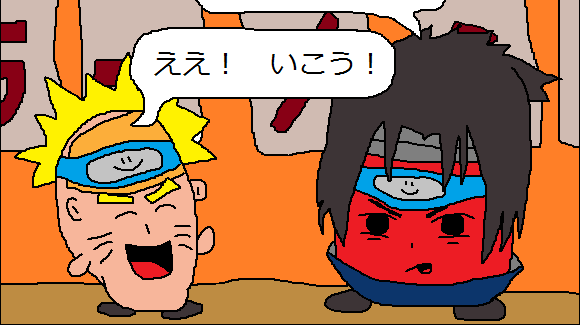
Read about the adventures of Narutoe – a ninja toe – and his friend Sauceke – a jar of tomato sauce.
Hey there and welcome to to the second installment of Learn Japanese through Ridiculous Manga, where, every Friday, we study Japanese together in a quick, fun way.
In case you missed last week’s episode where we learned the first five hiragana, you may want to go there first. This article assumes you’ve read that one, so don’t continue on without it.
And even if you’re thinking, “Oh I already know the first five hiragana,” go check it out anyway! There’s a pretty gosh darn funny manga there, if I do say so myself.
▼ If you haven’t yet read about Gorilla D. Ruffy – who wants to be the Pilot King – and Zoru – the three swordfish-using fighter – then you should check it out.
All right, are you a master of the first five hiragana? Great. Let’s move on!
Today we’re going to look at the next five hiragana. Just like before, I highly recommend putting these five into Anki, a flashcard program, so that you can practice them between articles. As long as you just do whatever Anki tells you to do every day (which usually isn’t much), you’ll be a master in no time.
1) Today’s first hiragana: か (ka)
(Pronounced like “copy”)
(Click the play button below to listen to our wonderful
native Japanese writer Meg pronounce this hiragana for you!)
▼ No problem here! This looks like a guy on his knees,
jammin’ out while singing some karaoke.
2) Today’s next hiragana: き (ki)
(Pronounced like “key”)
▼ This one looks like a bit of an oddly-shaped key.
3) Today’s next-next hiragana: く (ku)
(Pronounced like “cocoon”)
▼ Fun fact: Pac-man comes from the Japanese word paku paku,
which is the sound of eating. So just remember Paku-man!
4) Today’s penultimate hiragana: け (ke)
(Pronounced like “okay“)
▼ You have two kebob sticks, but only one of them has meat.
Hey, uh, some of these are harder than others….
5) Today’s final hiragana: こ (ko)
(Pronounced like “co-pilot”)
▼ If you fill in the blank space with your imagination,
it looks like a round coin.
(Click below to hear Meg pronounce all five hiragana!)
Okay, quiz time! Can you read the five hiragana below? (Hint: they’re not in the same order we just did them.)
And, if you’re already a pro at that, try reading all ten hiragana we’ve learned:
.
.
.
.
.
.
.
.
.
.
(1st Quiz Answer: ke, ki, ko, ku, ka)
(2nd Quiz Answer: o, ku, u, i, ki // ke, ka, ko, a, e)
Did you get them right? If you don’t feel confident yet, just review them in Anki and try again until you’re a Pokémon hiragana master.
But for now, it’s time for another segment that I like to call: Particle Party.
▼ Hooray! Particle Party!
Japanese has lots of “particles,” which are basically “little” words that help the “more important” words in a sentence come together and make sense. They’re kind of like “at,” “of,” “the” etc. in English.
This week we’ll be looking at one of the most important particles, which also just so happens to be one of the hiragana we learned today: か (ka).
What Does か (ka) Do?
It has several uses, but when it comes at the end of a sentence, it turns a statement into a question.
Japan-glish Examples:
He is a ninja. (Statement)
He is a ninja か = Is he a ninja? (Question)
You are alive. (Statement)
You are alive か = Are you alive? (Question)
Easy, right? Now let’s take a look at the particle か and the rest of the hiragana you’ve learned so far by reading excerpt from the manga Narutoe.
Narutoe – a disembodied toe – and his friend Sauceke – a jar of spaghetti sauce – live in the hidden ninja village of Konohaha. Tomorrow is their chewnin exam, where they will hopefully pass and become real ninjas. But before that, they need to get something in their stomachs for dinner.
(Read like a real Japanese manga: panels go from top right to left,
hiragana is read from left to right.)
Transcription:
Sauceke: Koko kuu ka? (Koko = here, kuu = eat, ka = the particle we learned)
Narutoe: Ee! Ikou!Narutoe: Kaki kuu ka? (Kaki = oysters, kuu = eat, ka = particle)
Sauceke: Iie.
Narutoe: Ika kuu ka? (Ika = squid, kuu = eat, ka = particle)
Sauceke: Iie.Sauceke: Okaikei!
Narutoe: E?!Narutoe: Okaikei kuu ka?! (Okaikei = check, kuu = eat, ka = particle)
Translation:
Sauceke: (Shall we) eat here?
Narutoe: Yeah! Let’s go!Narutoe: (Will you) eat oysters?
Sauceke: No.
Narutoe: (Will you) eat squid?
Sauceke: No.Sauceke: Check (please)!
Narutoe: Wha?!Narutoe: (You’re going to) eat the check?!
All right! Did you read it yourself? If not, then keep reviewing those hiragana in Anki until they’re no problem, and give it another crack!
And don’t worry about the meaning of the words right now. For now, we’re just concentrating on learning to read the hiragana. But don’t fret, we’ll get to those pesky meanings eventually!
Next Friday we’ll be taking a look at the next five hiragana, which will be the easiest ones yet. We’ll also have another parody manga, so be sure to get ready for another barrage of hilarious heinous puns.
In the meantime if you have any questions, feel free to leave a comment or send me a message on Twitter. I can’t promise that I know everything, but I can guarantee at least an attempt at a witty response.
See you next Friday everyone, and remember to stay ridiculous!
“Extra Credit” Anki Input: (Front / Back)
ここ / koko, here
くう / kuu, to eat
ここ くう か / koko kuu ka, (shall we) eat here?
ええ / ee, yeah
いこう / ikou, let’s go!
かき / kaki, oysters
かき くう か / kaki kuu ka, (will you) eat oysters?
いか / ika, squid
いか くう か / ika kuu ka, (will you) eat squid
おかいけい / okaikei, check (please!)
Text/images: ©RocketNews24

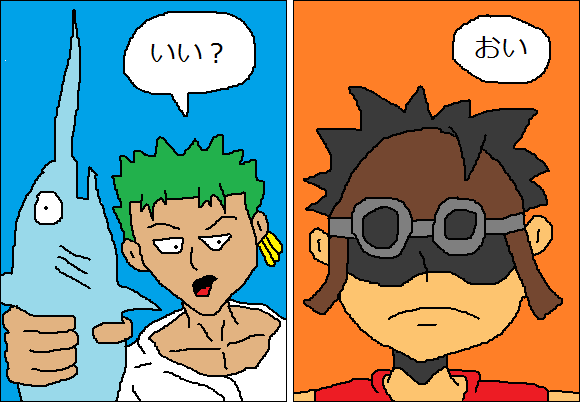
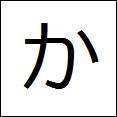
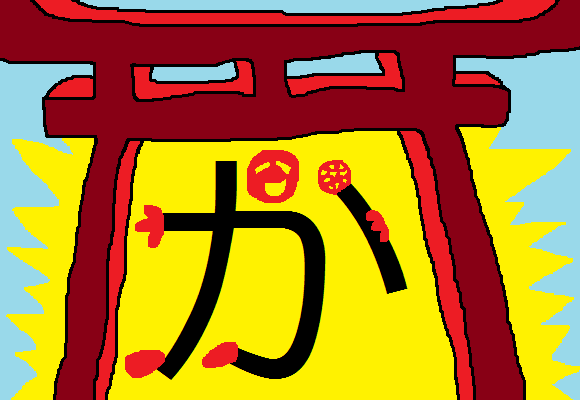
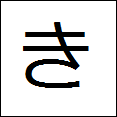
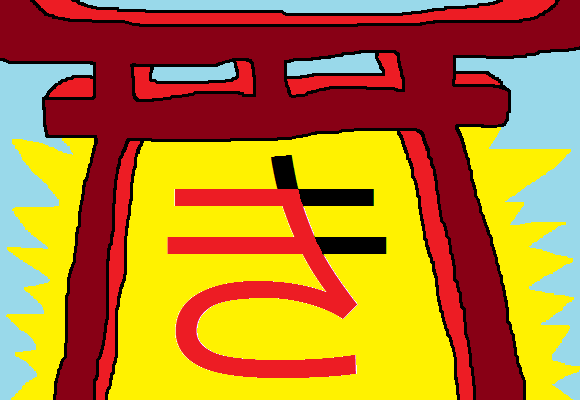
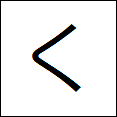
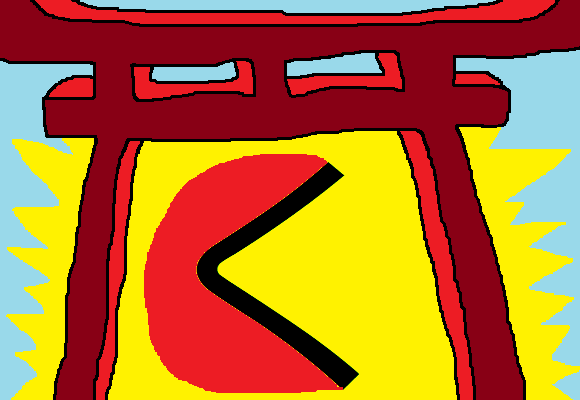
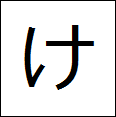
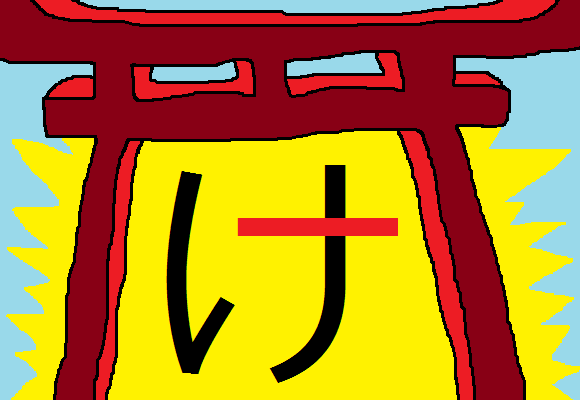
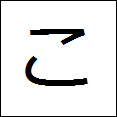
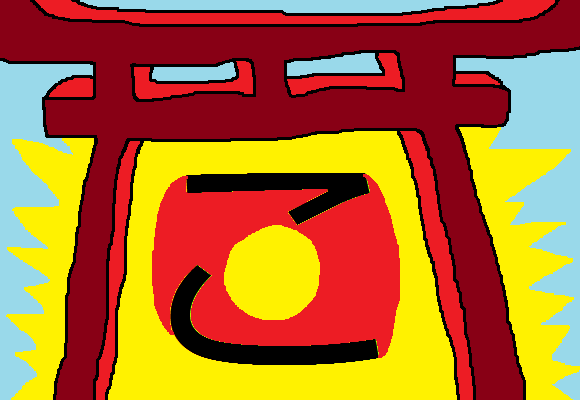

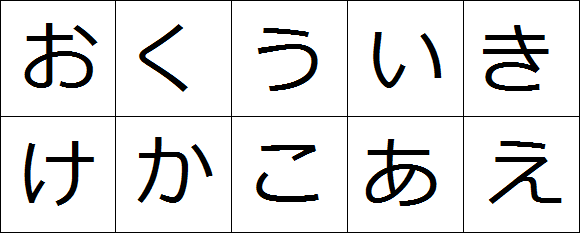
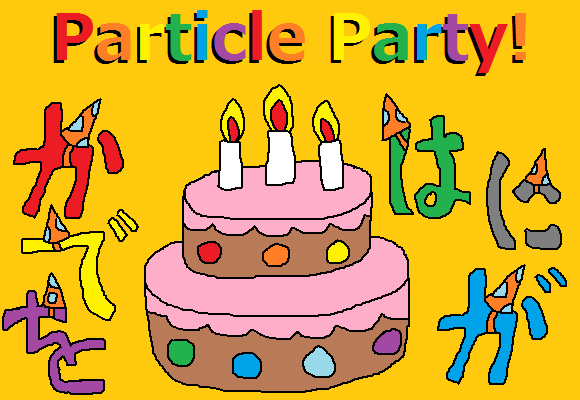
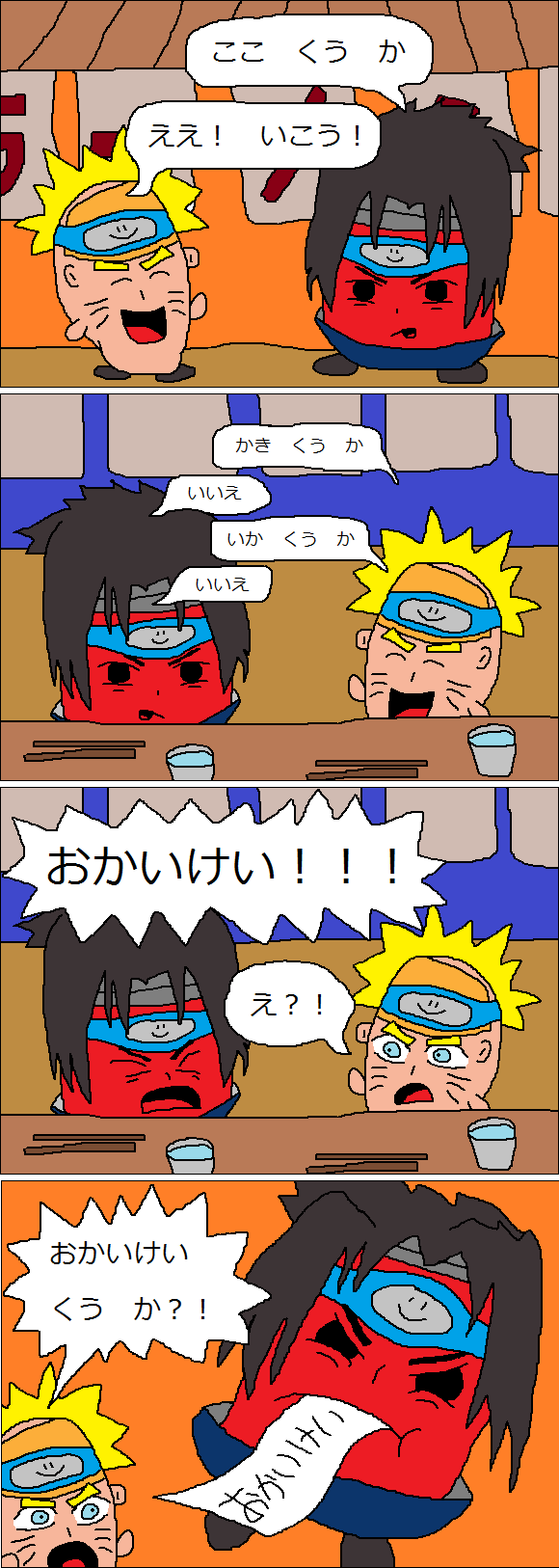
 Learn Japanese through ridiculous manga: Dragon Bowl【Episode #4】
Learn Japanese through ridiculous manga: Dragon Bowl【Episode #4】 Learn Japanese through ridiculous manga: Death Vote 【Episode #6】
Learn Japanese through ridiculous manga: Death Vote 【Episode #6】 Learn Japanese through ridiculous manga: A Tick on Titan 【Episode #3】
Learn Japanese through ridiculous manga: A Tick on Titan 【Episode #3】 Learn Japanese through ridiculous manga: Fullmedal Alchemist 【Episode #5】
Learn Japanese through ridiculous manga: Fullmedal Alchemist 【Episode #5】 Learn Japanese through ridiculous manga: Two Piece 【Episode #1】
Learn Japanese through ridiculous manga: Two Piece 【Episode #1】 Ghibli’s Kiki’s Delivery Service returns to theaters with first-ever IMAX screenings and remaster
Ghibli’s Kiki’s Delivery Service returns to theaters with first-ever IMAX screenings and remaster Highest Starbucks in Japan set to open this spring in the Tokyo sky
Highest Starbucks in Japan set to open this spring in the Tokyo sky Family Mart’s Shibuya Cat Street shop hosts first-ever rescue cat photo exhibition for Cat Day
Family Mart’s Shibuya Cat Street shop hosts first-ever rescue cat photo exhibition for Cat Day Citizen celebrates the 140th anniversary of Ueno Station with cool train-themed watch designs
Citizen celebrates the 140th anniversary of Ueno Station with cool train-themed watch designs Japan has omurice chocolate, and the weirdest thing isn’t how it tastes
Japan has omurice chocolate, and the weirdest thing isn’t how it tastes 10 Japanese expressions that sound delightfully strange and funny when translated
10 Japanese expressions that sound delightfully strange and funny when translated Brand-new Cardcaptor Sakura Cafe opens in Tokyo this week, with Kero-chan calling the shots
Brand-new Cardcaptor Sakura Cafe opens in Tokyo this week, with Kero-chan calling the shots New Dead or Alive beach volleyball game full of the busty ninjas, steel drums fans love 【Video】
New Dead or Alive beach volleyball game full of the busty ninjas, steel drums fans love 【Video】 Eight Ways You Really, Really Shouldn’t Use a Japanese Toilet
Eight Ways You Really, Really Shouldn’t Use a Japanese Toilet Survey finds that one in five high schoolers don’t know who music legend Masaharu Fukuyama is
Survey finds that one in five high schoolers don’t know who music legend Masaharu Fukuyama is The 10 most annoying things foreign tourists do on Japanese trains, according to locals
The 10 most annoying things foreign tourists do on Japanese trains, according to locals Starbucks Japan releases new sakura goods and drinkware for cherry blossom season 2026
Starbucks Japan releases new sakura goods and drinkware for cherry blossom season 2026 Is Sapporio’s Snow Festival awesome enough to be worth visiting even if you hate the snow? [Pics]
Is Sapporio’s Snow Festival awesome enough to be worth visiting even if you hate the snow? [Pics] Japan has trams that say “sorry” while they ride around town…but why?
Japan has trams that say “sorry” while they ride around town…but why? Tokyo Skytree turns pink for the cherry blossom season
Tokyo Skytree turns pink for the cherry blossom season Japan’s new “Cunte” contact lenses aren’t pronounced like you’re probably thinking they are
Japan’s new “Cunte” contact lenses aren’t pronounced like you’re probably thinking they are Shibuya Station’s Hachiko Gate and Yamanote Line stairway locations change next month
Shibuya Station’s Hachiko Gate and Yamanote Line stairway locations change next month Yakuzen ramen restaurant in Tokyo is very different to a yakuza ramen restaurant
Yakuzen ramen restaurant in Tokyo is very different to a yakuza ramen restaurant Starbucks Japan adds new sakura Frappuccino and cherry blossom drinks to the menu
Starbucks Japan adds new sakura Frappuccino and cherry blossom drinks to the menu Japan’s newest Shinkansen has no seats…or passengers [Video]
Japan’s newest Shinkansen has no seats…or passengers [Video] Foreigners accounting for over 80 percent of off-course skiers needing rescue in Japan’s Hokkaido
Foreigners accounting for over 80 percent of off-course skiers needing rescue in Japan’s Hokkaido Super-salty pizza sends six kids to the hospital in Japan, linguistics blamed
Super-salty pizza sends six kids to the hospital in Japan, linguistics blamed Starbucks Japan unveils new sakura Frappuccino for cherry blossom season 2026
Starbucks Japan unveils new sakura Frappuccino for cherry blossom season 2026 Foreign tourists in Japan will get free Shinkansen tickets to promote regional tourism
Foreign tourists in Japan will get free Shinkansen tickets to promote regional tourism Take a trip to Japan’s Dododo Land, the most irritating place on Earth
Take a trip to Japan’s Dododo Land, the most irritating place on Earth Naruto and Converse team up for new line of shinobi sneakers[Photos]
Naruto and Converse team up for new line of shinobi sneakers[Photos] Is China’s don’t-go-to-Japan warning affecting the lines at a popular Tokyo gyukatsu restaurant?
Is China’s don’t-go-to-Japan warning affecting the lines at a popular Tokyo gyukatsu restaurant? Survey asks foreign tourists what bothered them in Japan, more than half gave same answer
Survey asks foreign tourists what bothered them in Japan, more than half gave same answer Japan’s human washing machines will go on sale to general public, demos to be held in Tokyo
Japan’s human washing machines will go on sale to general public, demos to be held in Tokyo Starbucks Japan releases new drinkware and goods for Valentine’s Day
Starbucks Japan releases new drinkware and goods for Valentine’s Day We deeply regret going into this tunnel on our walk in the mountains of Japan
We deeply regret going into this tunnel on our walk in the mountains of Japan Studio Ghibli releases Kodama forest spirits from Princess Mononoke to light up your home
Studio Ghibli releases Kodama forest spirits from Princess Mononoke to light up your home Major Japanese hotel chain says reservations via overseas booking sites may not be valid
Major Japanese hotel chain says reservations via overseas booking sites may not be valid Put sesame oil in your coffee? Japanese maker says it’s the best way to start your day【Taste test】
Put sesame oil in your coffee? Japanese maker says it’s the best way to start your day【Taste test】 No more using real katana for tourism activities, Japan’s National Police Agency says
No more using real katana for tourism activities, Japan’s National Police Agency says W.T.F. Japan: Top 5 myths about learning Japanese【Weird Top Five】
W.T.F. Japan: Top 5 myths about learning Japanese【Weird Top Five】